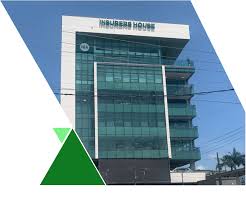The Nigerian insurance industry experienced remarkable growth in the 2024 financial year, marked by a significant surge in gross written premiums, total assets, and market capitalization. This expansion was primarily driven by the non-life insurance segment, with substantial contributions from fire and oil and gas insurance lines. The life insurance sector also witnessed considerable growth, primarily fueled by group life insurance policies. Despite these positive financial indicators, the industry acknowledges the persistent challenge of low insurance penetration and is actively pursuing strategies to address this issue.
The industry’s gross written premium reached an impressive N1.56 trillion, a 56% increase compared to N1.003 trillion in 2023. This substantial growth underscores the increasing adoption of insurance products and services across various sectors of the Nigerian economy. The non-life segment contributed a significant portion of this growth, generating N1.1 trillion in premiums, while the life segment accounted for N470 billion. This disparity highlights the relative dominance of non-life insurance products in the Nigerian market.
The growth trajectory extended to other key financial metrics. Total assets of the insurance industry expanded by 46.1% to N3.9 trillion from N2.67 trillion in 2023, indicating a strengthening financial position. Market capitalization also witnessed a considerable boost, reaching N1.2 trillion, a 41% increase from N850 billion in the previous year. This positive performance reflects growing investor confidence in the insurance sector’s potential for sustained growth and profitability.
Claims payments, a critical indicator of the industry’s commitment to its policyholders, amounted to N622 billion. The non-life segment accounted for the majority of these payments, dispensing N437 billion, while the life segment paid out N185 billion. The higher claims payout in the non-life segment aligns with its larger premium base and the nature of the risks covered, which often involve more frequent and potentially larger claims.
While celebrating the positive financial performance, the industry acknowledges the persistent challenge of low insurance penetration. Efforts to address this issue are focused on enforcing compulsory insurance policies, streamlining the claims payment process, and consolidating insurance-related laws. These strategies aim to increase awareness of the benefits of insurance, improve customer experience, and create a more conducive regulatory environment for industry growth. The successful implementation of the Automatic ECOWAS Brown Card Scheme in 2024 is another noteworthy development, facilitating seamless insurance coverage for motorists travelling within ECOWAS member states, further expanding the reach and impact of insurance services.
The Nigerian Insurance Association (NIA) has played a key role in driving these initiatives and fostering collaboration within the industry. The NIA’s efforts to collaborate with the Nigerian National Bureau are aimed at ensuring the industry meets the evolving needs and expectations of all stakeholders. The Association’s commitment to deepening relationships with various stakeholders and driving collective progress underlines its dedication to building a stronger and more impactful insurance ecosystem in Nigeria. The future outlook for the Nigerian insurance industry remains positive, with continued focus on innovation, regulatory improvements, and expanding access to insurance services for a wider population.














